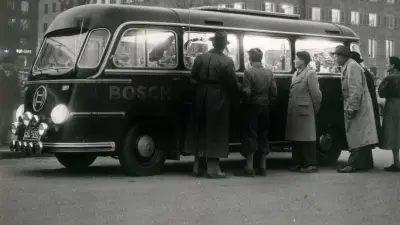History Blog

Anyone who wishes to shape the future has to know their past. By looking at Bosch’s rich heritage, we can pinpoint what makes us special and reflect on where our journey may take us next. We invite you to browse our history blog, with its intriguing posts from more than 130 years of Bosch history.